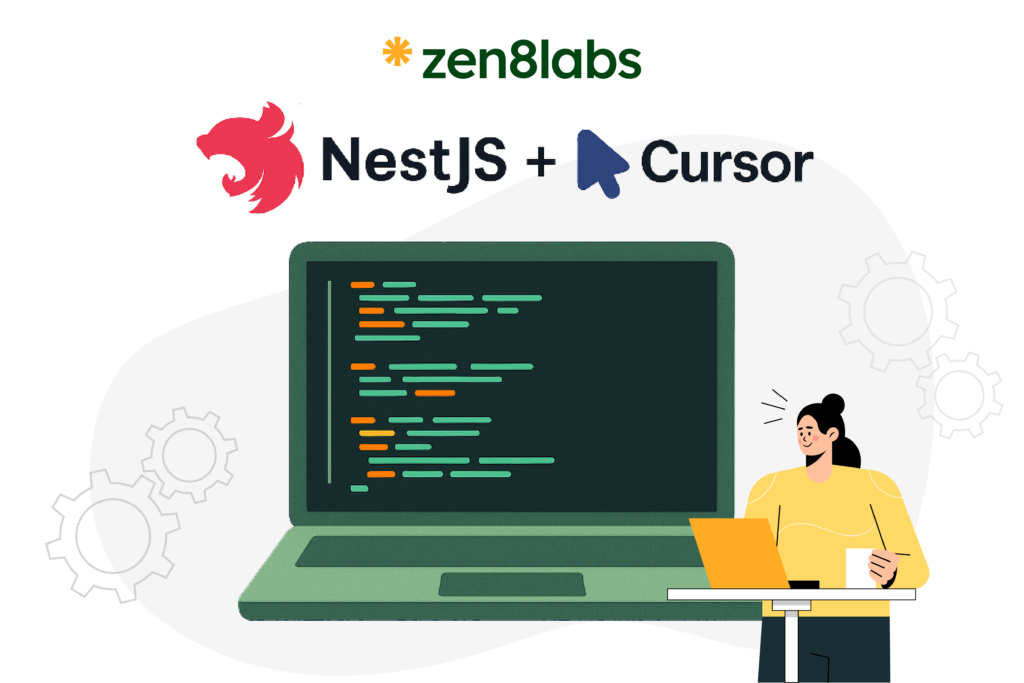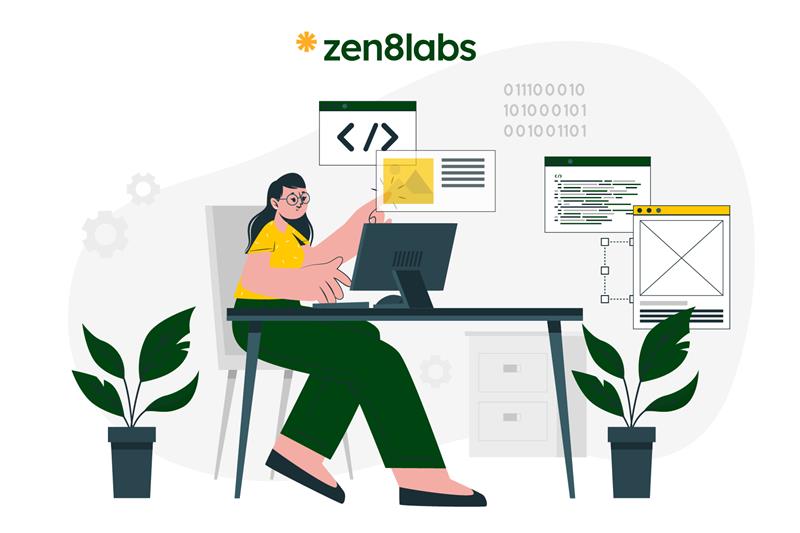Becoming a proficient Odoo developer can be particularly necessary within specialized projects. Therefore, it is essential to develop a comprehensive understanding of the Odoo framework. This requires a blend of foundational knowledge, practical application, and ongoing skill enhancement. In this blog, I will give you a more detailed and formal roadmap of Odoo that is designed to support developers who are aiming to excel in Odoo, tailored to the specific needs of a specialized IT project. First there is a section which gives you some ways to approach Odoo, then I will give you some learning hinds that can help you to succeed with Odoo.
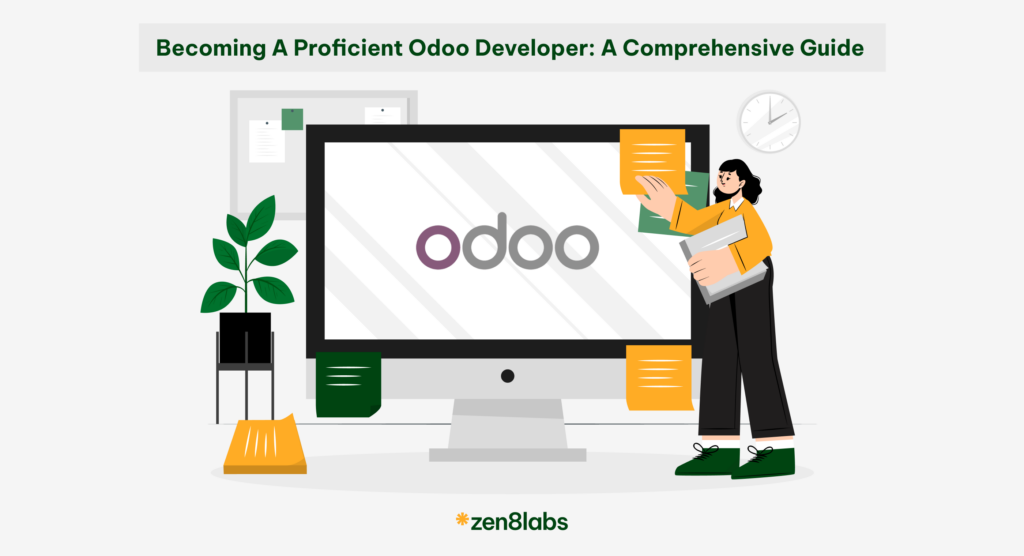
I. The practical part
1. Master Python
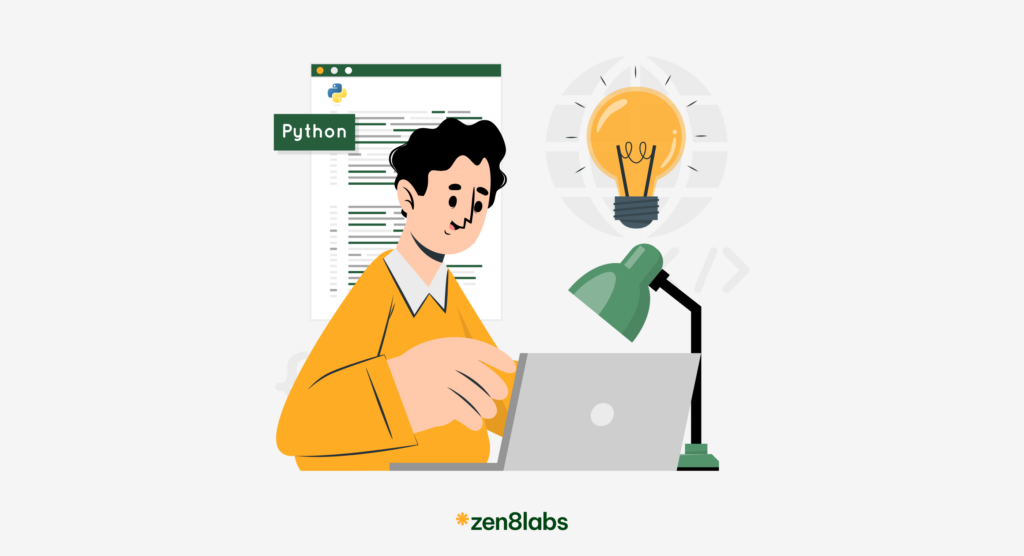
Odoo was built in 2005 using Python, having a healthy understanding of this programming language is crucial for any IT project. Python is known for its readability and simplicity, making it an excellent choice for both beginners and experienced developers.
- Learn Python syntax and basics: This begins with understanding the fundamentals of Python, including variables, data types, operators, and control flow statements.
- Gain a proficiency in data structures: Develop a strong understanding of Python data structures such as lists, dictionaries, sets, and tuples. These are essential for handling data efficiently in Odoo. When you know this, then you can move onto the next part.
- Understanding of the functions and modules: This is where you learn to write reusable code using the functions and modules found in Python. This will help you create modular and maintainable Odoo applications.
- Explore the Object-Oriented Programming (OOP): As Odoo heavily relies on OOP principles. It is important to understand what the following areas are. These are classes, objects, inheritance, polymorphism, and encapsulation. It is important to know how these work in an effective manner so that you can go ahead and work with Odoo models.
2. Understand the Odoo framework
Now you’ve done the Python stage, you come to the Odoo framework. The Odoo framework is immense, it provides foundation for building a wide range of business applications.
- Familiarize yourself with Odoo architecture: You should familiarize yourself with the core components of Odoo, including its modular structure, ORM (Object-Relational Mapping), and MVC (Model-View-Controller) design pattern. To help you gain some more familiarity with the Odoo architecture, I’ve added a link that should help you.
- Study the modules, models, views, and controllers: Here you start to understand how these components interact within the Odoo ecosystem. Modules define the structure and functionality, models represent the data layer, views handle the presentation layer, and controllers manage the business logic.
- Use official documentation. What is the official documentation? The official Odoo documentation is a comprehensive resource. It provides detailed explanations, code examples, and best practices for developing Odoo applications.
3. Gain practical experience
After you have taken the time to understand the Odoo architecture, it’s time to gain hands-on experience to help you in mastering Odoo development. Here are some suggestions I have on how to do that:
- Work on simple projects: Start with small projects to get comfortable with the development process. Customize existing modules or create new ones to understand how different components work together.
- Implement features: Challenge yourself by adding various features. This could include creating custom fields, developing new views, implementing specific business logic, and integrating third-party APIs.
- Troubleshoot and debug: Encountering and resolving issues is a crucial part of the learning process. Use debugging tools and techniques to identify and fix problems in your code.
But there are many ways to approach this, so take the time and effort to trial Odoo and find the way that works for you to gain practical experience.
4. Studying existing Odoo apps
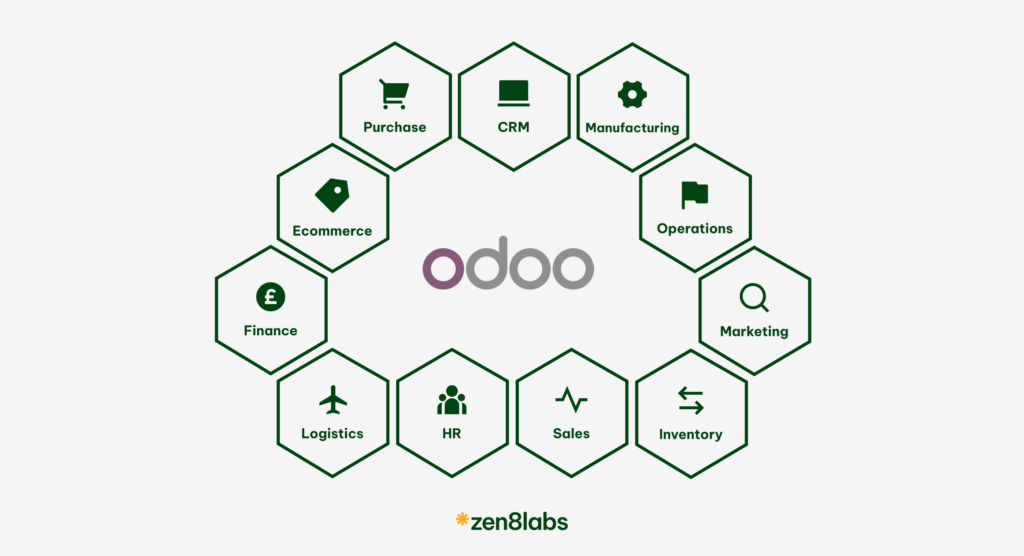
Here you are gaining the experience of Odoo, enjoying its features when you decide to go exploring the Odoo app store. The app store can provide valuable insights into how different functionalities are implemented plus it has a range of functions and categories that can help you on your Odoo journey. By having a look at the existing apps and modules, you can do some of the following:
- Firstly, you can learn the best practices. This can allow you to study well-developed modules to help gain an understanding of the best industry practices and coding standards that allow you to work towards your project goals.
- Follow this up by taking the time to discover new techniques. Observe how experienced developers solve common problems and implement features.
- From this you should gain inspiration. By reviewing a variety of apps in the store, it could spark new ideas for your modules or customizations you might want to develop for your projects. These ideas should help to give you a step towards enjoying the Odoo app store.
5. Stay updated with the latest developments
As Odoo grows with each new version, it is essential for us developers to stay updated with the latest developments to maintain their proficiency. One way to do this is by following official releases from Odoo because each update brings a range of features, performance improvements, and bug fixes that can impact your development work. By carrying out regular checks for these updates, it helps to ensure that you’re learning the latest tools and functionalities, allowing you to build more efficient and modern solutions. It also helps you avoid potential compatibility issues, as outdated modules may no longer work with newer versions. By having this proactive approach, it keeps your development skills sharp and aligned with the ongoing evolution of the platform.
Adding to the point of following official releases, you should learn from the knowledge shared on the Odoo community. Reading blogs and articles written by Odoo experts can provide deep insights into newly introduced features, development tips, and best practices. These resources often offer practical examples and real-world applications that you can apply to your own projects. You can find some suggestions on engaging and contributing with the Odoo community in the next part.
II. The learning process
1. Engage and contribute with the Odoo community
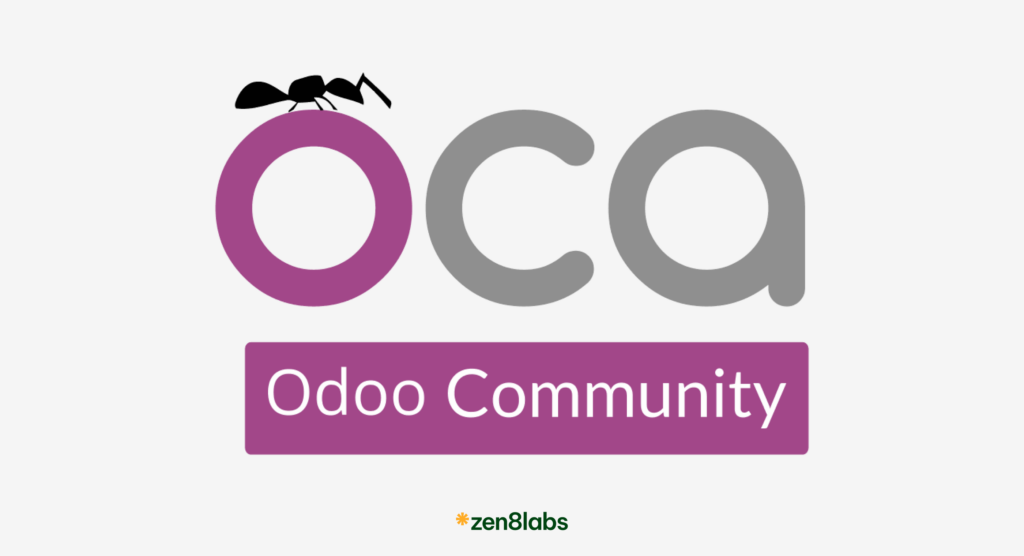
As mentioned above, you should stay informed about updates. One way you can do this is by using the Odoo community. It is a rich source for learning, support, and collaboration. By engaging with the community, you can greatly enhance your development skills. I’ve added in some ways which have helped me:
- Join forums and mailing lists: Participating in discussions on Odoo forums and mailing lists is a great learning method. These platforms allow you to ask questions, share knowledge, and learn from other developers’ experiences that are specific to your projects.
- Contribute to discussions: Try to actively contribute to discussions by answering questions and providing insights. It gives you a chance to not only help others but also reinforce your own understanding or learn from other mistakes.
- Network with local user groups: I would recommend that you connect with local Odoo user groups to share experiences, collaborate on projects, and learn from peers in your region.
- Sharing knowledge: Whether you write blog posts, create tutorials, or record video guides to share your knowledge with the community. Sharing your knowledge is a good way to give back.
- Submit bug fixes and improvements: Contribute to the Odoo codebase by submitting bug fixes and improvements. This collaborative effort helps improve the platform for everyone.
2. Attend training sessions and workshops
Another part of the learning process is to take part in structured training sessions and workshops to speed up your learning process. There are two ways to do it:
- Enroll in official training: Odoo offers official training courses that cover various aspects of development. These courses are designed by experts and provide in-depth knowledge of the framework which, depending on your specialized area, can be extremely beneficial for you.
- Participating in workshops: Attending workshops is a great way to gain practical experience in a guided setting and make errors. Workshops often focus on specific topics, allowing you to deepen your knowledge in your specialized areas.
3. Build a strong portfolio
One of the best things you can do to learn is to build a strong portfolio. As you are gaining experience of Odoo, you can build a portfolio of your work, then use it to showcase your skills to potential employers or clients, in addition to give people a guide for learning.
- Documenting your projects: Keep a detailed record of the projects you have worked on, anything you learned from this project and how you solved and implemented a solution.
- Highlight customizations: Here is the chance to showcase customizations and modules that you have developed, emphasizing the unique features and functionalities you implemented.
- Creating case studies: Create case studies that detail how you addressed specific business needs using Odoo plus it would demonstrate how you applied your skills to real world scenarios.
III. Conclusion
Becoming a proficient Odoo developer is a rewarding journey that requires a combination of technical knowledge, practical experience, and a commitment to continuous learning. By following those steps above and dedicating the necessary time and effort to learning the Odoo platform, you can progressively build the skills required to develop robust, efficient, and scalable applications.
Now you have an achievable approach through mastering Python that allows you to continuously apply your skills through practical experience. As well as keeping pace with new updates, and embracing challenges as opportunities for growth, you can become a highly skilled Odoo developer through the mentioned learning approach. In turn, you’ll be able to make meaningful contributions to the Odoo ecosystem, help your specialized project to optimize its workflows, and bring value to your clients through innovative and tailored solutions. With dedication and perseverance, the possibilities in Odoo development are vast, and your potential impact on the businesses that rely on Odoo for their operations is significant. If you want to keep learning how to make meaningful impacts, then follow the zen8labs blog.
Duong Phi, Odoo Developer
